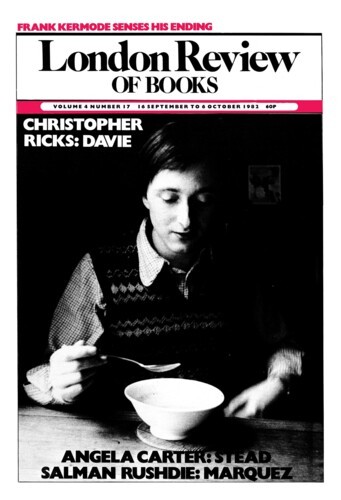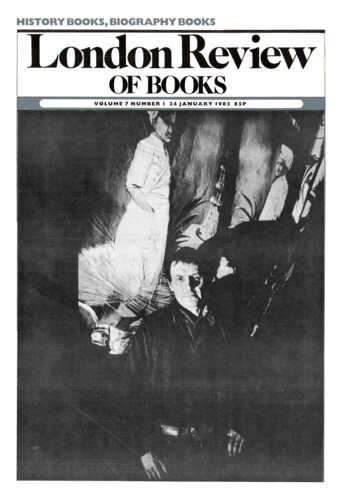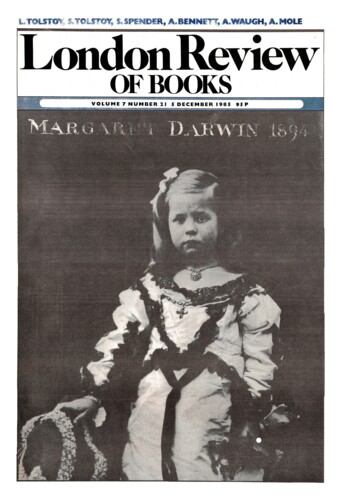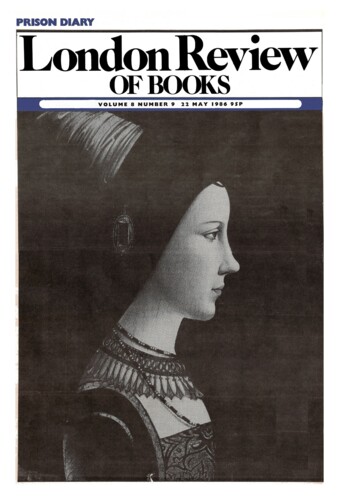Unhappy Families
Angela Carter, 16 September 1982
To open a book, any book, by Christina Stead and read a few pages is to be at once aware that one is in the presence of greatness. Yet this revelation is apt to precipitate a sense of confusion, of strangeness, even of acute anxiety, not only because Stead has a devastating capacity to flay the reader’s sensibilities, but also because we have grown accustomed to the idea that we live in pygmy times. To discover that a writer of so sure and unmistakable a stature is still amongst us, and, more, produced some of her most remarkable work as recently as the Sixties and Seventies, is a chastening thing. Especially since those two relatively recent novels – Cotters’ England (1966) and Miss Herbert (the Suburban Wife) (1976) – contain extremely important analyses of post-war Britain, address the subject of sexual politics at a profound level, and have been largely ignored in comparison with far lesser novels such as Doris Lessing’s The Golden Notebook. To read Stead, now, is to be reminded of how little, recently, we have come to expect from fiction. Stead is of that category of fiction writer who restores to us the entire world, in its infinite complexity and inexorable bitterness, and never asks if the reader wishes to be so furiously enlightened and instructed, but takes it for granted that this is the function of fiction. She is a kind of witness and a kind of judge, merciless, cruel and magnificently unforgiving.





